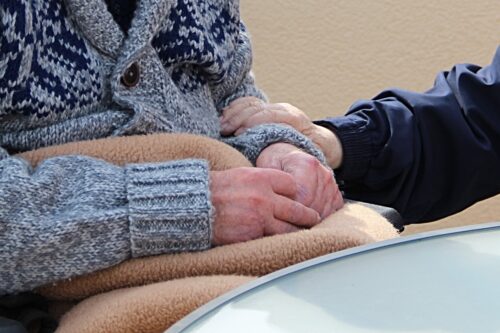Care Deserts: Advocating for Elders in Understaffed Skilled Nursing Facilities
September 18, 2023

In recent years, the issue of inadequate staffing levels in skilled nursing facilities has become a growing concern. The Covid-19 pandemic compounded this problem when challenging work conditions in hard hit facilities led to staff burnout. Now skilled nursing facilities are competing with deeper pocketed hospitals to recruit staff as a nursing and caregiver shortage looms large across the US. Bare bones staffing has become such a hot button topic that there is now a government proposal to increase the minimum staffing requirements at nursing homes. However, even that falls short –the proposed raised standards are still far too low – translating according to a recent New York Times article to 1 nurse for every 44 residents and 1 care aide for every 10 residents. Insufficient staffing can lead to compromised quality of care, impacting the well-being and safety of residents. Negative consequences include reduced attention to residents’ basic needs like assistance with feeding, hygiene, incontinence care, and timely assistance with transfers and mobility. There are also increased risks of medical errors and depression due to limited social interaction.
Here are some steps that families can take to help mitigate sub-optimal staffing levels and increase the quality of care for their loved ones.
- Regularly visit your loved one to monitor their physical and emotional well-being.
- Engage in open communication with both the staff and your loved one to stay informed about their care plan and any changes in their health.
- Flag any signs of inadequate care early on and bring it to the attention of the director of nursing.
- Regularly communicate your expectations and concerns to help ensure that your loved one’s needs are met.
- Show appreciation when good care is delivered through thoughtful gestures such as writing a positive review for exceptional caregivers or nurses or bringing in an occasional snack or treat for staff on duty.
- Stay informed about your loved one’s medical condition, medications, and care plans, and actively participate in care conferences or meetings.
- Familiarize yourself with the facility’s policies, procedures, and state regulations to hold facility administrators accountable
- If you can’t visit regularly, consider engaging the services of an aging life care professional www.aginglifecare.org who can visit and advocate on your behalf.
- If you remain concerned about scant staffing and response times on call bells, consider hiring private supplemental companion care www.holistichonecareassociates.com A one-on-one well-matched companion can make a subacute rehab or nursing home stay much more tolerable for your elderly loved one. The presence of a private companion even for a few hours a day can be especially comforting for those who are not ambulatory or have dementia.
While families may not have control over staffing levels at healthcare facilities, being an engaged advocate and taking proactive steps can go a long way to enhance the safety and comfort of their loved ones.
Anne C. Sansevero RN, MA, GNP, CCM
Aging Life Care ® Professional
Founder & CEO
HealthSense LLC
Ph: (646) 241-3463
Email: anne@health-sense.org
Web: www.health-sense.org
![HealthSense [logo]](https://www.health-sense.org/wp-content/uploads/sites/242/2017/02/logoNEW.png)